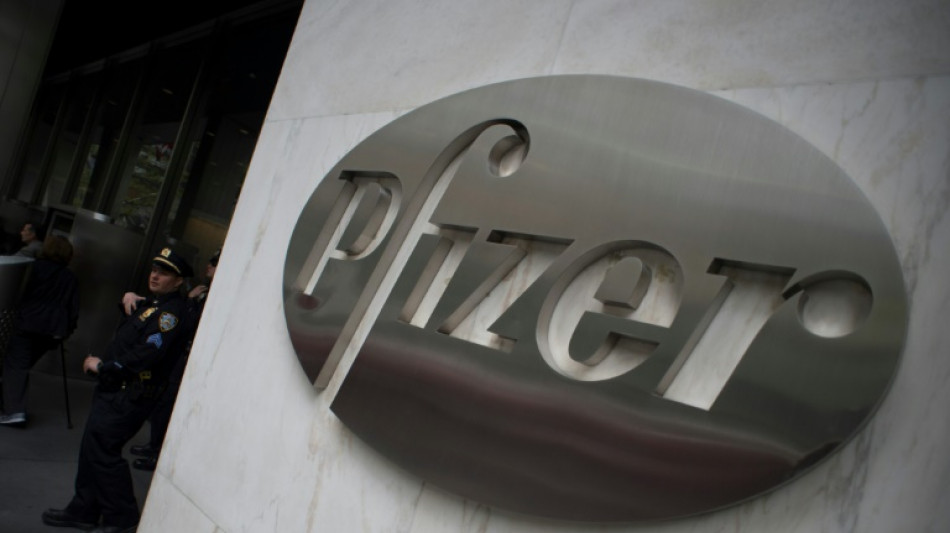
-
 Gstaad gives O'Brien record 21st Breeders' Cup win
Gstaad gives O'Brien record 21st Breeders' Cup win
-
After the tears, anger on Rio's blood-stained streets
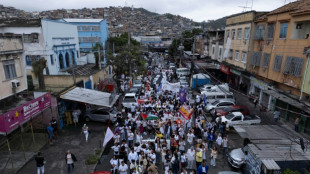
-
 Sinner boosts number one bid in Paris, to face Zverev in semis
Sinner boosts number one bid in Paris, to face Zverev in semis
-
Springer back in Toronto lineup as Blue Jays try to close out Dodgers

-
 Nationals make Butera MLB's youngest manager since 1972
Nationals make Butera MLB's youngest manager since 1972
-
Guirassy lifts Dortmund past Augsburg ahead of Man City clash

-
 G7 says it's 'serious' about confronting China's critical mineral dominance
G7 says it's 'serious' about confronting China's critical mineral dominance
-
NFL fines Ravens $100,000 over Jackson injury status report

-
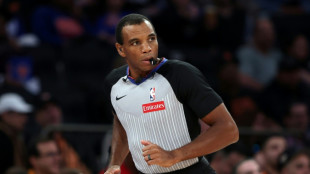 NBA refs to start using headsets on Saturday
NBA refs to start using headsets on Saturday
-
Trump says Christians in Nigeria face 'existential threat'
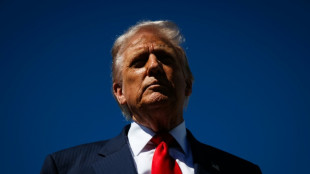
-
 French-Turkish actor Tcheky Karyo dies at 72
French-Turkish actor Tcheky Karyo dies at 72
-
Food stamps, the bulwark against hunger for over 40 mn Americans

-
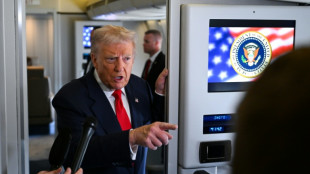 Trump keeps world guessing with shock nuclear test order
Trump keeps world guessing with shock nuclear test order
-
Wall Street stocks rebound on Amazon, Apple earnings
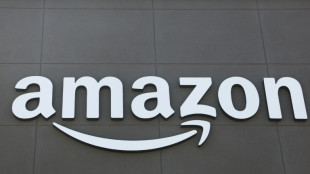
-
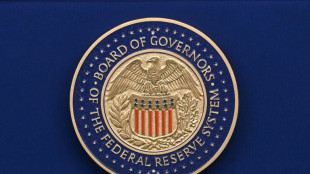 US Fed official backed rate pause because inflation 'too high'
US Fed official backed rate pause because inflation 'too high'
-
Prayers and anthems: welcome to the Trump-era Kennedy Center
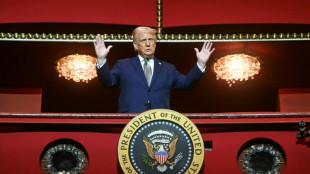
-
 Swiss central bank profits boosted by gold price surge
Swiss central bank profits boosted by gold price surge
-
Sinner beats Shelton to boost number one bid in Paris

-
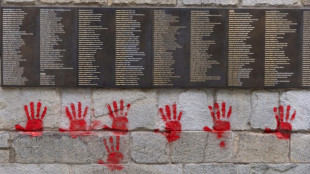 French court jails Bulgarians for up to four years for Holocaust memorial defacement
French court jails Bulgarians for up to four years for Holocaust memorial defacement
-
Profits dip at ExxonMobil, Chevron on lower crude prices
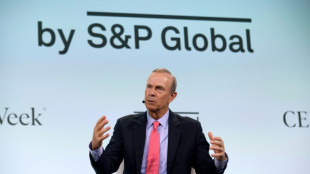
-
 Ashraf and Mirza skittle South Africa as Pakistan win 2nd T20
Ashraf and Mirza skittle South Africa as Pakistan win 2nd T20
-
2,000 trucks stuck in Belarus after Lithuania closes border: association

-
 French lawmakers reject wealth tax proposal in budget debate
French lawmakers reject wealth tax proposal in budget debate
-
Premier League blames European expansion for lack of Boxing Day games

-
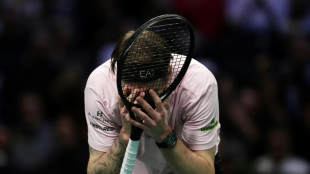 Bublik sets up Auger-Aliassime semi-final at Paris Masters
Bublik sets up Auger-Aliassime semi-final at Paris Masters
-
World's most expensive coffee goes on sale in Dubai at $1,000 a cup

-
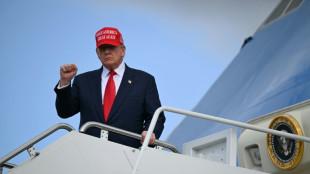 Trump stirs global tensions, confusion with nuclear test order
Trump stirs global tensions, confusion with nuclear test order
-
Panic across US as health insurance costs set to surge

-
 Court eases ban on Russian lugers but Olympic hopes on thin ice
Court eases ban on Russian lugers but Olympic hopes on thin ice
-
England captain Itoje targets Autumn Nations clean sweep

-
 Calmer Sabalenka sets sights on WTA Finals crown
Calmer Sabalenka sets sights on WTA Finals crown
-
Spurs boosted by Romero return for Chelsea clash

-
 Sudan's RSF claims arrests as UN warns of 'horrendous' atrocities in Darfur
Sudan's RSF claims arrests as UN warns of 'horrendous' atrocities in Darfur
-
US says 'non-market' tactics needed to counter China's rare earth dominance

-
 China sends youngest astronaut, mice to space station
China sends youngest astronaut, mice to space station
-
From adored prince to outcast, Andrew's years-long fall from grace

-
 Rodri return fuels Guardiola belief in Man City title challenge
Rodri return fuels Guardiola belief in Man City title challenge
-
China holds send-off ceremony for space station astronauts

-
 Barcelona to show off unfinished Camp Nou with public training session
Barcelona to show off unfinished Camp Nou with public training session
-
Turkish court jails 11 for life over deadly hotel inferno

-
 Auger-Aliassime ends Vacherot run to reach Paris Masters semis
Auger-Aliassime ends Vacherot run to reach Paris Masters semis
-
Australia captain Wilson denies Wallabies use 'dangerous' breakdown tactics
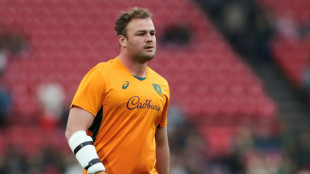
-
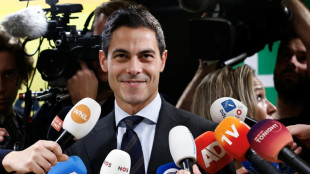 'Populists can be beaten': Dutch centrist Jetten claims election win
'Populists can be beaten': Dutch centrist Jetten claims election win
-
China's suspension of rare earth controls applies to EU: official

-
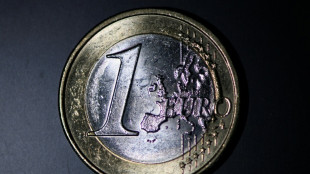 Italy complains about strong euro, urges ECB to cut rates
Italy complains about strong euro, urges ECB to cut rates
-
Louvre to get anti-ramming barriers by year end: minister

-
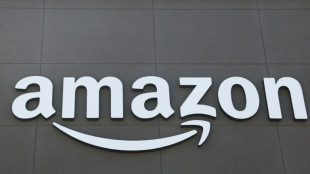 Wall Street bounces on Amazon, Apple earnings
Wall Street bounces on Amazon, Apple earnings
-
AI giants turn to massive debt to finance tech race

-
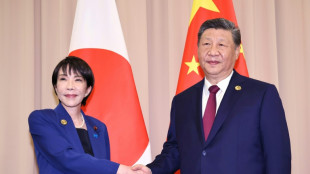 Japan PM says raised 'serious concerns' with Xi on South China Sea, Xinjiang
Japan PM says raised 'serious concerns' with Xi on South China Sea, Xinjiang
-
Shein set to open first physical store in Paris
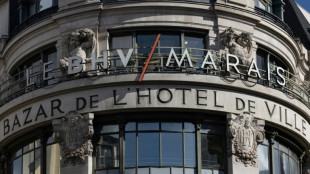

WHO 'strongly recommends' Pfizer's Covid pill
The World Health Organization said Friday it "strongly recommended" Pfizer's Covid-19 antiviral pill Paxlovid for patients with milder forms of the disease who were still at a high risk of hospitalisation.
However the UN agency warned it was "extremely concerned" that the inequality in access seen with Covid vaccines would again leave low- and middle-income countries "pushed to the end of the queue".
US pharma giant Pfizer's combination of nirmatrelvir and ritonavir was the "superior choice" of treatment for unvaccinated, elderly or immunocompromised people with Covid, the WHO's experts said in the BMJ medical journal.
For the same patients, the WHO also made a "conditional (weak) recommendation" of the antiviral drug remdesivir made by US biotech firm Gilead -- which it had previously recommended against.
The WHO recommended Paxlovid over remdesivir, as well as over Merck's molnupiravir pill and monoclonal antibodies.
Pfizer's oral treatment prevents hospitalisation more than the "available alternatives, has fewer concerns with respects to harms than molnupiravir, and is easier to administer than intravenous remdesivir and antibodies," the WHO's experts said.
The new recommendation was based on the findings of two trials involving almost 3,100 patients which showed that Paxlovid reduced the risk of hospital admission by 85 percent.
The trials also "suggested no important difference in mortality" and "little or no risk of adverse effects leading to drug discontinuation".
The recommendation applies to people over the age of 18, but not to pregnant or breastfeeding women.
It also does not apply to patients with a low risk of complications from the disease, because the benefit would be minimal.
The WHO's experts also declined to give an opinion for patients with severe forms of the disease, due to a lack of data.
- Limitations and inequities -
The WHO stressed the limitations of such antiviral treatments.
"The medicine can only be administered while the disease is at its early stages," they said.
This means the patients must quickly test positive and be prescribed the pill by a doctor -- all of which can pose obstacles for low- and middle-income countries, the WHO said.
Yet Covid pills have been seen as a potentially huge step in ending the pandemic as they can be taken at home, rather than in hospital.
Patients must start taking their Paxlovid pills within five days of the onset of symptoms -- the course then lasts five days.
Remdesivir can be taken within seven days of symptoms setting in, but it is administered intravenously over three days.
- Questions about cost -
The WHO called on Pfizer to "make its pricing and deals more transparent" for Paxlovid.
Lisa Hedman, the WHO's senior advisor on access to medicines, said that radio station NPR reported a full course of Paxlovid costs $530 in the United States. Another source unconfirmed by WHO gave the price of $250 in an upper-middle income country.
Remdesivir meanwhile costs $520, Hedman said, but generic versions made by companies in India sell for $53-$64.
There is also a question mark over whether the virus could build resistance to these treatments.
But earlier this month Pfizer CEO Albert Bourla predicted a bright future for treatments like Paxlovid as people grow tired of getting further booster vaccinations.
Coming under fire for prioritising wealthy countries with its vaccine, Pfizer has agreed to allow some generic drugmakers around the world to make cheaper versions of Paxlovid under a UN-backed scheme.
But on Friday the WHO "strongly recommended" that Pfizer let more generic manufacturers produce the drug and "make it available faster at affordable prices".
K.Thomson--BTB



